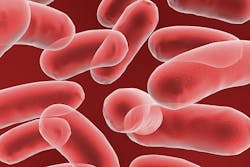Collaboration and modernization can help prevent multi-state foodborne disease outbreaks
The U.S. government and food industry can work together to help prevent multi-state foodborne disease outbreaks, according to a new report from the Centers for Disease Control and Prevention (CDC).
According to the Vital Signs report, multi-state outbreaks account for more than half of all deaths in foodborne disease outbreaks in the United States, despite accounting for only 3 percent of reported outbreaks.
The leading causes of multi-state outbreaks are Salmonella, E. coli and Listeria. These bacteria are more dangerous than the leading causes of single-state outbreaks, and can contaminate widely distributed foods, such as vegetables, beef, chicken and fresh fruits.
The report makes a series of recommendations to help minimize food safety risks. It says that local, state and national health agencies should work closely with the industry to understand how foods are produced and distributed to speed up multi-state outbreak investigations. These investigations can reveal fixable problems that resulted in food becoming contaminated and learning lessons that can help strengthen food safety.
Additionally, the report highlights the need for food companies to play a greater role in improving food safety by following best practices for growing, processing and shipping foods. And it says that the industry can help stop outbreaks and lessen their impact by keeping detailed records to allow faster tracing of foods from source to destination, by using store loyalty cards to help identify which foods made people sick, and by notifying customers of food recalls.
Under the 2011 FDA Food Safety Modernization Act, the U.S. Food and Drug Administration (FDA) is developing new regulations that will hold both domestic and foreign companies accountable for preventing foodborne illness before it occurs.
Meanwhile, the U.S. Department of Agriculture (USDA) has been taking a science-based approach to preventing foodborne illness, relying on available data, trends and technological advances.
“The USDA Food Safety and Inspection Service’s top priority is preventing multi-state foodborne illness outbreaks from occurring. As we look toward the future, USDA will continue to work with FDA, CDC, industry and the states to advance our science-based approach to food safety,” said Phillip Derfler, USDA deputy administrator for the Food Safety and Inspection Service. “By focusing on collaboration and modernization, we are confident that there will be a decline in multi-state outbreaks.”
